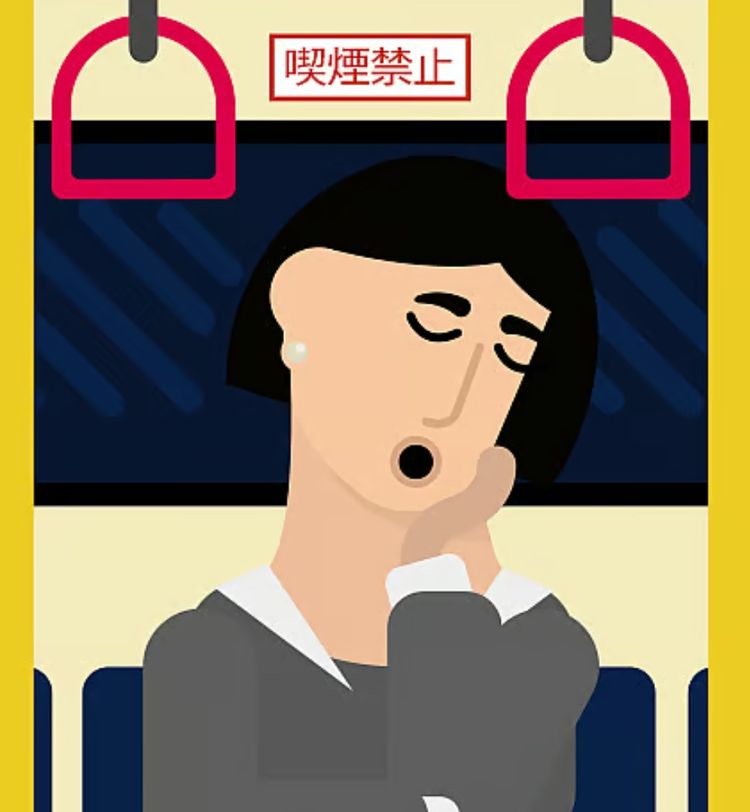In a world so rich in culture and diversity, there’s one thing we all have in common: we love a good snooze. That said, our sleeping habits vary wildly from country to country. For example, taking a nap during the day here in the UK might be a sign that we’re not getting enough shuteye at night, whereas in other countries napping is just a part of everyday life.
We decided to have a look into some of the most interesting sleeping habits from around the world to see how they differ from our own here in Britain. Here are the ones that piqued our interest the most:
Japan: inemuri (napping in public)

What would your boss say if you decided to take a nap at your desk during the afternoon slump? We imagine they might be less than impressed. But in Japan, it’s actually culturally acceptable to fall asleep on the job. In fact, it’s seen as a sign of diligence; if you’re needing to take a nap during the day, you’re clearly working too hard!
In Japan, act of falling asleep in public is known as “inemuri”, which translates as “sleeping on duty”. But the practice isn’t restricted to the workplace; it’s not uncommon to see people catching 40 winks in shops, restaurants, cafes or even on public transport.
Spain: siesta

Perhaps one of the world’s most famous sleeping rituals, the Spanish siesta is a short nap taken in the early afternoon, just after lunch. It was traditionally introduced to allow field-workers to take a break and escape from the midday heat; they would then return to work feeling refreshed and work until later in the evening when the air is cooler.
Nowadays, the siesta is less prevalent than it used to be in Spain, though it is historically recognised throughout Southern Europe and the Mediterranean.
Scandinavia: children sleeping outside

Here, if you were to see a baby in an abandoned pram outside, you’d probably be quite alarmed. But in Scandinavian countries such as Denmark and Norway, it’s actually common practice to leave little ones outside homes, cafes or restaurants whilst they sleep.
This practice is believed to promote better daytime sleep in infants, as well as increased happiness, more energy and the ability to nod off in any environment, even those that are noisy or too bright.
Guatemala: worry dolls

Worry dolls are tiny, handmade figurines descended from Mayan legend. They tend to be made from wood or wire and dressed in colourful yarn to represent traditional Mayan attire.
In Guatemala, people whisper their daily stresses and troubles to a worry doll and then place the doll beneath their pillow before settling down to sleep. The idea is that, by unburdening yourself of worry before going to bed, you’ll get a more restful night’s sleep and wake up feeling fresh and stress-free, having unloaded your problems the night before.
Afghanistan: multi-purpose bedrooms

In the UK, we associate our bedrooms mainly with sleeping and resting, and use other rooms to socialise. However, in Afghanistan, one room can serve a number of different purposes.
According to sleep.com, families in Afghanistan fold up their mattresses and put their bedding away in the morning, ready to use the room for socialising during the day.
Various countries across the globe: co-sleeping

Co-sleeping is practiced in several countries across Africa, Asia, Southern Europe, South America and Central America. It is the practice of multiple people sharing a sleep space, from mother and children to whole tribes. For example, in aboriginal tribes, a group of people will sleep in a row, with the young and elderly in the middle, protected by healthy adults on either side.
Co-sleeping is believed to strengthen bonds and reduce stress, and is even thought to regulate breathing in babies.
Bali: todoet poeles

Have you ever been in a stressful situation and just wished you could curl up and sleep to escape from it all? Well in Bali, that’s pretty much what people do!
Also known as “fear sleep”, todoet poeles is the act of falling instantly into a deep sleep during times of extreme stress. This works to remove the fear response to worrisome events or obstacles in life and helps to create the calm, zen-like state Bali is known for.
Botswana: no sleep schedule

Here in the UK, we’re used to waking up at roughly the same time every morning and heading off to bed at the same time each evening. But in some countries, there’s no such thing as a sleep schedule.
For example, the !Kung hunter-gatherer tribe in Botswana are renowned for only sleeping when they’re tired, no matter what time of day it is. Sleep is seen as a ‘fluid state’, and sleeping only when tired is said to promote better rest.
Has all this talk of sleep made you crave a soft, cosy bed to sink into? Browse our gorgeous range of luxury French beds and discover a sleeping space only dreams are made of!


















